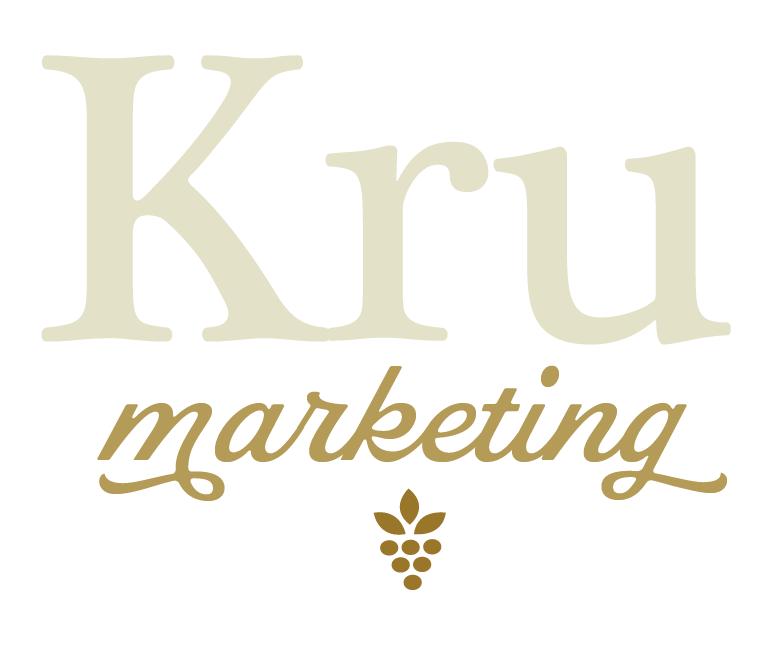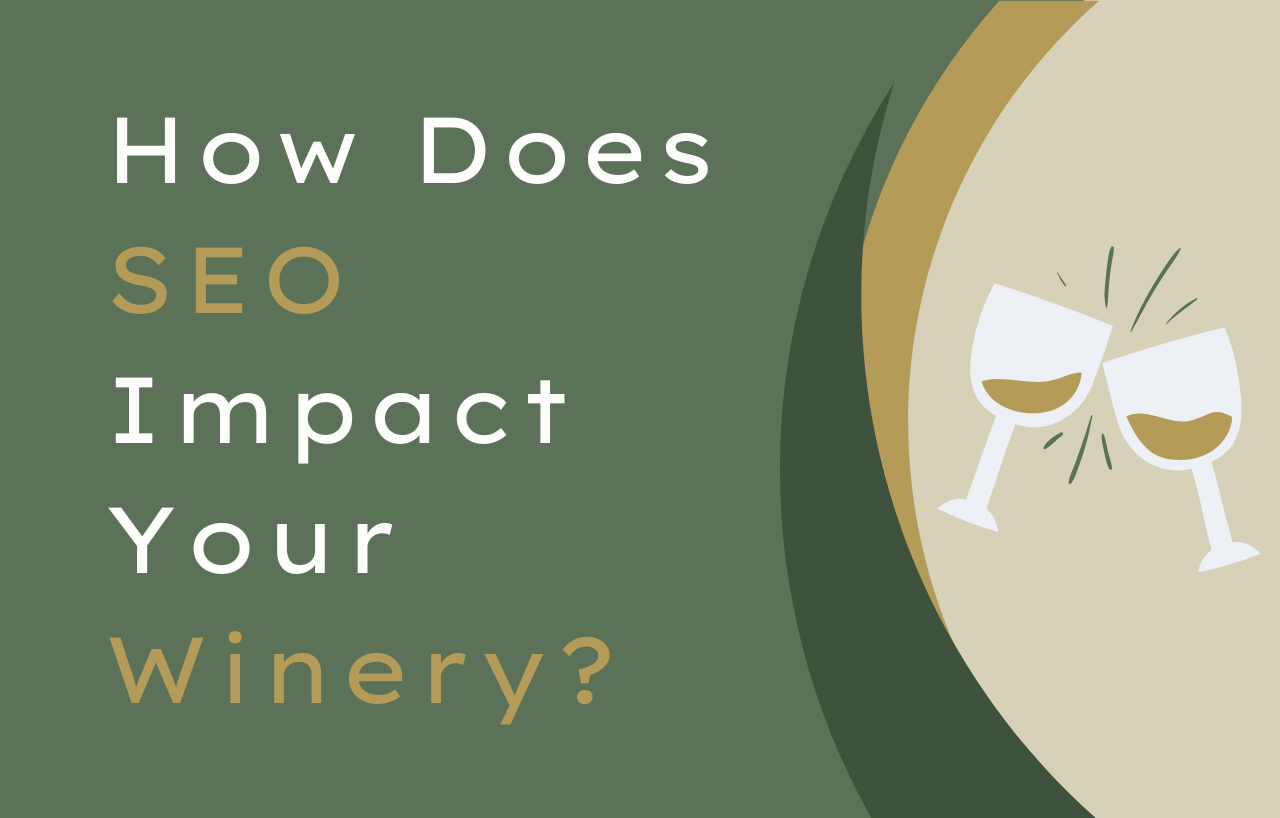It can be hard to see the connection between a few keywords on your winery website and a booked-out tasting room. But amazingly, search engine optimization (SEO) can put your winery on the map for customers who might not have found your business without it.
Wine lovers in your area want to visit your winery. But without relevant keywords, it’s hard for them to discover you.
With targeted keyword research and a thoughtful SEO campaign, your website, blog posts, and social media campaigns can find the right audience and draw them to your website.
In this blog, we’ll tell you why wine SEO works, and how you can use it to fill your tasting room, improve your eCommerce sales, and grow your email list.
Benefits of winery SEO
SEO is the practice of finding the words or phrases customers use to search for your products, and then adding them to your website, blog, and social media text. That way, search engines associate your web content with those keywords, and you’re more likely to rank higher in search engine results pages.
A well-considered SEO strategy helps you find the right consumers: your target audience. Not every wine drinker will love your wine or respond to your winery’s brand story. With winery SEO, you can use the keywords that resonate with your target audience so you know you’re connecting with the consumers who are most likely to visit, purchase, and visit again.
Here’s how a better search engine ranking delivers powerful advantages for your winery.
Increased tasting room reservations
When consumers want to book a wine tasting, they’ll most likely start their search on Google. Having the right keywords on your website, blog posts, and social media posts makes it easier for search engines to find you and rank your winery higher.
Wine consumers also use Google Maps to find tasting rooms in their area. If your Google business profile is up to date and includes the right keywords, you’ll rank higher when a consumer searches for local wineries on Google Maps.
Both of these tactics make you visible to consumers. They want to find you, but they can’t book a tasting if they don’t know you exist. SEO helps you jump to the top of the search engine results and get discovered by the consumers who want to visit your tasting room.
Grow your eCommerce sales
Younger wine drinkers tend to buy wine online, which could be a brilliant opportunity for your winery. And SEO helps eCommerce wine consumers find your brand online.
Remember, winery SEO drives more website traffic, and it attracts consumers to your website that want to be there. When you have the attention of the right consumers, they’re more likely to stay on your website longer and make a purchase.
Get more wine club subscriptions
Your website is the perfect vehicle for increasing wine club subscriptions and once again, SEO helps would-be subscribers find you.
With the right SEO strategy, your wine club can grow to include wine enthusiasts from across the country. You’ll be able to sell more, more regularly, and build relationships and customer loyalty with wine drinkers who care about your wines.
Grow your email list
Subscribing to an email list may seem small, but it’s a strong step towards building a relationship with a new customer.
Using SEO, you can get more visitors to your winery website. And because your SEO strategy has helped you find the right consumers, they’re more likely to sign up for your email list when they visit your website.
7 tips to create a winery SEO strategy
Identify key phrases
Keyword research identifies the right words and phrases to include in your online text. There are free tools that can help you find a few keywords (like these from Ahrefs), and subscription-based tools that will take that initial research even further (like SE Ranking).
You’ll probably start by researching the phrases that you regularly use to describe your products. But don’t forget to consult the true experts on your products: your loyal customers. The phrases they use to describe your wine might be the language that resonates more with potential customers.
Consult online reviews or ask for feedback or testimonials from your customers to find keywords you might not have considered.
Research and measure those phrases
With some keywords in hand, research how often consumers are searching for them (called the “monthly search volume” or MSV) and how competitive they are.
Other wineries may already be using some of the keywords you’ve found in your research. These keywords are considered “competitive” and will probably be difficult to rank for in search results.
A better plan is to find keywords with a moderately high monthly search volume and a lower rate of competition.
Write your copy for those phrases
Once you’ve identified your keywords, they should appear on every page in your website. You’ll use overarching keywords that work at a high level to help customers find your brand.
Plus, you’ll identify other keywords that are specific to an individual blog post or product page. Don’t write anything –- not even a popup box or Contact page –- without consulting your keyword research.
Find the right balance of keyword density
Whether you’re composing a new blog post or writing your homepage copy, including keywords in your text is essential.
But, you don’t want to include too many. That’s called “keyword stuffing”, and search engines hate it. In fact, your website will be demoted in search engine rankings if you’re stuffing keywords on your website.
It’s best to include your keywords in a natural way, without forcing them into the conversation.
Continue the cycle for every new piece of copy
If you want your website to climb Google’s search results, you need to regularly create content for it. Blogs are a clever way to add fresh, SEO-friendly content, and for best results, you should commit to publishing a new blog post at least once per week if you can.
But keep in mind, every new page on your website should have a carefully-constructed SEO strategy, complete with targeted keywords. That way, you can scale the search rankings and help wine lovers find your winery.
Write from the heart
With all this talk about SEO strategies and search queries, it can be easy to forget that it’s the humans behind the website traffic that you want to connect with.
Incorporate your keywords in the appropriate density, weaving them into your brand story in a way that feels natural and honest. Customers buy from brands that spark interest and resonate with their values.
So include your keywords, but don’t forget to let your passion for wine shine in every word on your website.
Partner with a winery SEO expert
The wine industry is changing, and your marketing tactics need to follow suit. SEO for wineries is essential for encouraging website traffic and sparking meaningful connections with your customers.
At Kru Marketing, we’re dedicated to helping winemakers connect with the right consumers through SEO and online marketing. We create data-driven SEO strategies that deliver unmistakable results. Talk to our team to get started.

